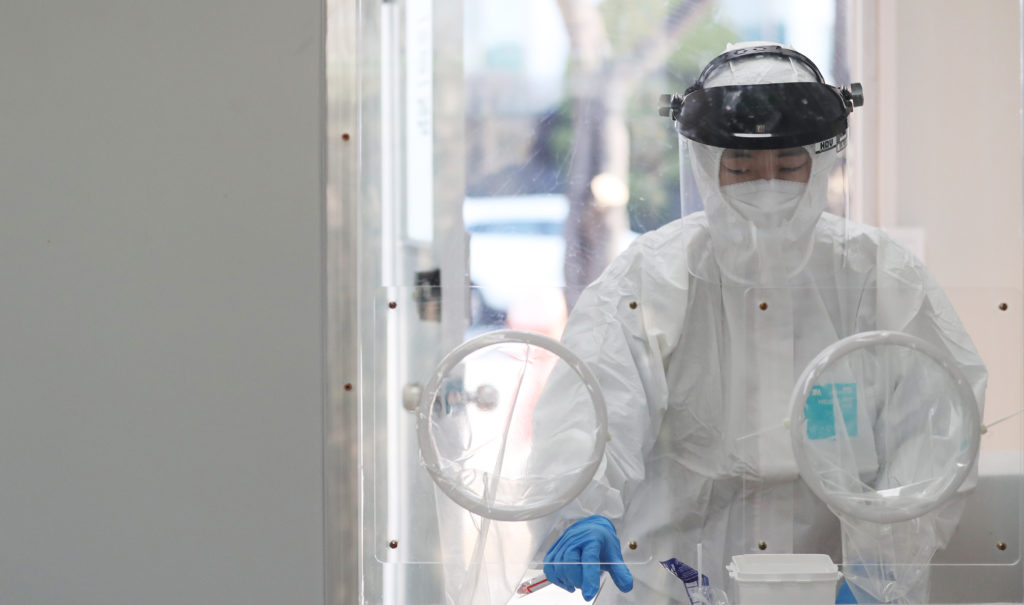The Peninsula
A Gap Between Health Experts and Public Health Policy
Published June 19, 2020
Category: South Korea

This briefing comes from Korea View, a weekly newsletter published by the Korea Economic Institute. Korea View aims to cover developments that reveal trends on the Korean Peninsula but receive little attention in the United States. If you would like to sign up, please find the online form here.
What Happened
- The South Korean government recently launched a mandatory quick response (QR) code system to log visitors at high-risk entertainment facilities as part of its latest efforts to curb the spread of the coronavirus outbreak.
- This decision came after authorities struggled to trace people who had visited nightclubs and bars in Seoul’s Itaewon district, where clusters of new cases were detected.
- According to South Korea’s Centers for Disease Control and Prevention (KCDC), personal data collected from the QR codes, which includes full names and phone numbers, will be encrypted and destroyed after four weeks.
Implications: The pushback around the adoption of QR code-based tracing system suggests that the policy-making process excluded many public health experts and privacy advocates. Although the government remains buoyed by strong public support, the adoption of the latest tech tools to combat COVID-19 raised questions about the policymaking process from some medical experts. Privacy advocates also raised worries about this latest tech initiative. This further suggests that the government has inadequately explained its rationale for the trade-off between privacy and public health to key civic organizations.
Context: In May, South Korea was in the international spotlight for slowing the spread of COVID-19 without instituting a lockdown. Many nations studied South Korea’s approach to containment. However, a resurgence of infections has raised questions about the effectiveness of Korea’s policies to-date. Although South Korea saw a much larger spike of infections in February and March, those were much easier to track because a majority of the cases were concentrated in a single community of church-goers in the city of Daegu.
Korea View was edited by Yong Kwon with the help of James Constant, Soojin Hwang, Sonia Kim, and Ingyeong Park.
Picture from flickr user Republic of Korea
